
In 2020 and 2021, the scam that impacted the largest number of people was done through online purchases. Either you or someone you know may very well have been scammed. Today’s guest is Melissa Trumpower. Melissa Trumpower is the Executive Director of the BBB Institute for Marketplace Trust, the Educational Foundation of the Better Business Bureau. Melissa is the co-author of several research reports, including the BBB Scam Tracker Risk Report, the BBB Online Purchase and Employment and Small Business Scam Reports. She has more than 30 years of leadership experience working with not-for-profit, has a bachelor’s degree from Cornell University and a master’s from John Hopkins University.
“Don’t be rushed. If you are being asked to make a decision right away, it is best to walk away as that is a red flag.” - Melissa Trumpower Share on XShow Notes:

- [1:01] – Welcome to the show, Melissa! Melissa shares her current role with BBB and the mission of the organization.
- [2:05] – Scam trackers from the BBB were created in 2015 to be really intentional and specific to track data on threats.
- [3:30] – Melissa explains why she was drawn to this position with BBB.
- [5:09] – Due to Covid, more people were online in 2020 and 2021 and online purchasing scams were the riskiest.
- [6:25] – The BBB utilizes a risk index that looks at more than just the most prevalent of scams.
- [7:23] – Online purchase scams don’t involve a lot of money per individual target, but they are riskiest because of how many of them are extremely believable.
- [8:37] – Online purchase scams are simple. You purchase an item from a website or an ad and you never receive the item.
- [9:45] – Be aware that you can come across fake websites in your web searches as well.
- [10:46] – Melissa shares things to look for in sites that you have never purchased from before.
- [11:56] – Don’t do anything rash especially if you feel like something is off.
- [13:03] – The method of payment can be a red flag.
- [14:21] – Crypto is also increasingly used in online purchase scams.
- [16:43] – Be very careful even when sending crypto to someone you know and be certain you are sending it to the right person.
- [17:04] – Employment scams are another top scam for the third year in a row.
- [19:24] – Employment scams average a loss of over $900 per target.
- [20:38] – Some job listings, especially on Craigslist, tend to be very vague and promising.
- [22:55] – The other two top scams are home improvement scams and investment scams.
- [24:24] – If you are investing money, do the research before making decisions. Melissa gives examples of what you can do to ensure safety.
- [27:25] – Scammers do sometimes also pose as legitimate companies.
- [28:02] – Don’t believe everything you see or read. Be cautious.
- [29:28] – Another element BBB is looking at is the non-financial impact of scams.
- [30:42] – The highest scam for susceptibility is the moving scam.
- [32:29] – Consumers often read reviews and it is nearly impossible to tell the difference between a real or fake review.
Thanks for joining us on Easy Prey. Be sure to subscribe to our podcast on iTunes and leave a nice review.
Links and Resources:
- Podcast Web Page
- Facebook Page
- whatismyipaddress.com
- Easy Prey on Instagram
- Easy Prey on Twitter
- Easy Prey on LinkedIn
- Easy Prey on YouTube
- Easy Prey on Pinterest
- BBB Scam Tracker
- BBB Marketplace Trust
Transcript:
Melissa, thank you so much for coming on the Easy Prey Podcast today.
Thanks for having me, Chris.
Can you give myself and the audience a little bit of background of who you are and what you do?
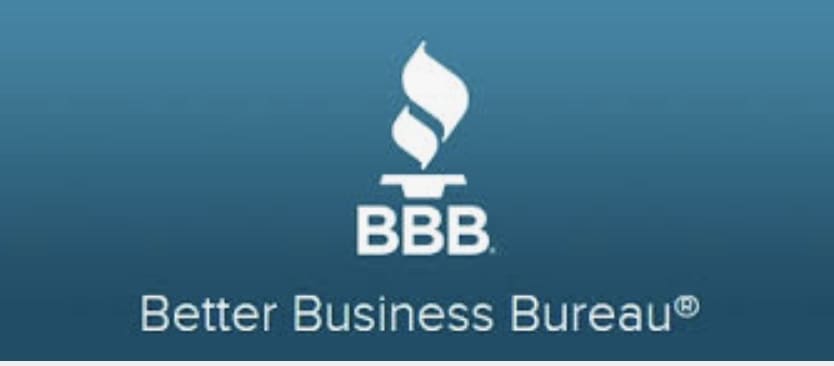
I am the Executive Director of the BBB Institute for Marketplace Trust. Essentially, that is the educational foundation for the Better Business Bureau. I oversee the foundation. We have a wide range of programs. Our mission really is about marketplace trust.
We have a wide range of programs, one of them being the BBB Scam Tracker, which is an online platform that allows consumers to submit scams that targeted them. Sometimes they have less money, sometimes they don't. We do a lot of consumer education using that data because, really, in our opinion, consumer education is the best protection against scams. That's a little bit about me.
Consumer education is the best protection against scams. -Melissa Trumpower Share on XAbsolutely. How did the BBB Scam Tracker get started?
It was actually created in 2015. We are in the process of rebuilding it. We're going to be relaunching a brand new version of it later this year. The Better Business Bureau for years has worked on consumer complaints, which are for legitimate businesses and something that they've done for 100 years.
Scams, it's not that they never existed, but they decided in 2015 to create this new platform to be much more specific about collecting information about bad actors and, for the most part, pastoring real businesses and real people or taking advantage.
We really wanted to make sure we had enough information and to collect that data so we could use it to, like I said, create programs for people to help them become more aware and understand how they can protect themselves, but also to do research.
We do publish two or three reports every single year, releasing new information for other organizations who are in the fight to stop scams as well as consumers—providing them with more tips.
Great. Is there something that specifically happened to you or that made you interested in getting involved in this aspect of what BBB does?
I personally have been involved in the nonprofit world for many, many years. This job came up. I've been with the organization for about five years. I thought it was really fascinating what they were doing. Not just with the consumer fraud stuff, but we also have another program called BBB For Good, which is looking at purpose-driven businesses.
I will not talk a whole lot about today, but that's really what drew me to the organization. It's because of my background, corporate social responsibility, and really understanding the good that a lot of businesses are now doing in the world and trying to help consumers really understand how to find those businesses. That's really what drew me. I obviously became very involved in Scam Tracker and a lot of our other fraud programs as well. It was a lot of learning over the last five years.
I'm sure. Particularly with scams, it's a very fast-moving, fast-paced—I don't know if I want to call it industry, but a fast-moving arena.
Scammers change with the wind. They change with the news as it changes. They know how to shift. -Melissa Trumpower Share on XIt is. Scammers change with the wind. They change with the news as it changes. They know how to shift. They have to change their tactics constantly. They're really good at that. Yeah, you're right. You have to stay on top of it.
Let's talk about the 2021 Scam Tracker Risk Report. Let's go through some of the top scams that have been reported to you. What consumers should be watching out for if they see it? What should they do? Things like that.
Interestingly, this report came out last week, their 2021 BBB Scam Tracker Risk Report. The interesting thing about the research every year is we take a full year of data from Scam Tracker and really take a look at what's changed over the last year, what are the trends we're seeing so that we can provide new information for the consumers so they can stay safe.

In the 2020 report, we noticed it essentially came out after COVID had been around for about a year. One of the things we saw: there were more people online, obviously. They were searching for more jobs as well remotely and so forth. That had a huge impact that year.
We saw a huge increase in online purchase scams, which was the number-one riskiest scam in 2020. It was also the number one riskiest scam in 2021. As you know, COVID continued to impact us last year as well. Many of us were still home. I think we all hoped it would be over after a year, it wasn't, because we continued on.
People continued to spend more time online, make more purchases online. Many people continued to work remotely, for that reason, online purchase scams remain the riskiest. When I say riskiest, the Better Business Bureau has what we call our BBB Risk Index.
We don't look at just what is the most prevalent scam in the marketplace, although, I would say online purchase scams are the most prevalent for what we saw reported. About a third of the scams reported in both 2020 and 2021 were online purchase scams. What made them risky is that they had a high susceptibility rate, meaning, about 75% of people who were targeted by that scam actually lost money. That’s why they're risky.
About a third of the scams reported in both 2020 and 2021 were online purchase scams. -Melissa Trumpower Share on XThe three things we look at are how many scams are out there, what's the chance, and what's the likelihood of people losing money? Out of all the online purchase scams, 75% of people lost money to them. Then the other third factor is median dollar loss. If you do lose money to that scam, are you losing a lot of money?
Online purchase scams, there's a lower median dollar loss. What makes it risky is that there are so many of them out there, and with 75% of people losing money to them, that's a lot of money that's being lost, so you're more susceptible.
The other thing I would say that was interesting in 2021 is that cryptocurrency scams rose from the seventh riskiest in 2020 to the second riskiest in 2021. That was another shift that's notable for folks who are interested in getting involved with cryptocurrency. Just be careful.
There are a lot of scammers that are really taking advantage of people who both know a lot about crypto and people that don't. They're finding new ways. I would say that the scam types, there's a wide range of different ways that they're using cryptocurrency. They're being perpetrated in lots of different ways. That was a huge shift for us in 2021.
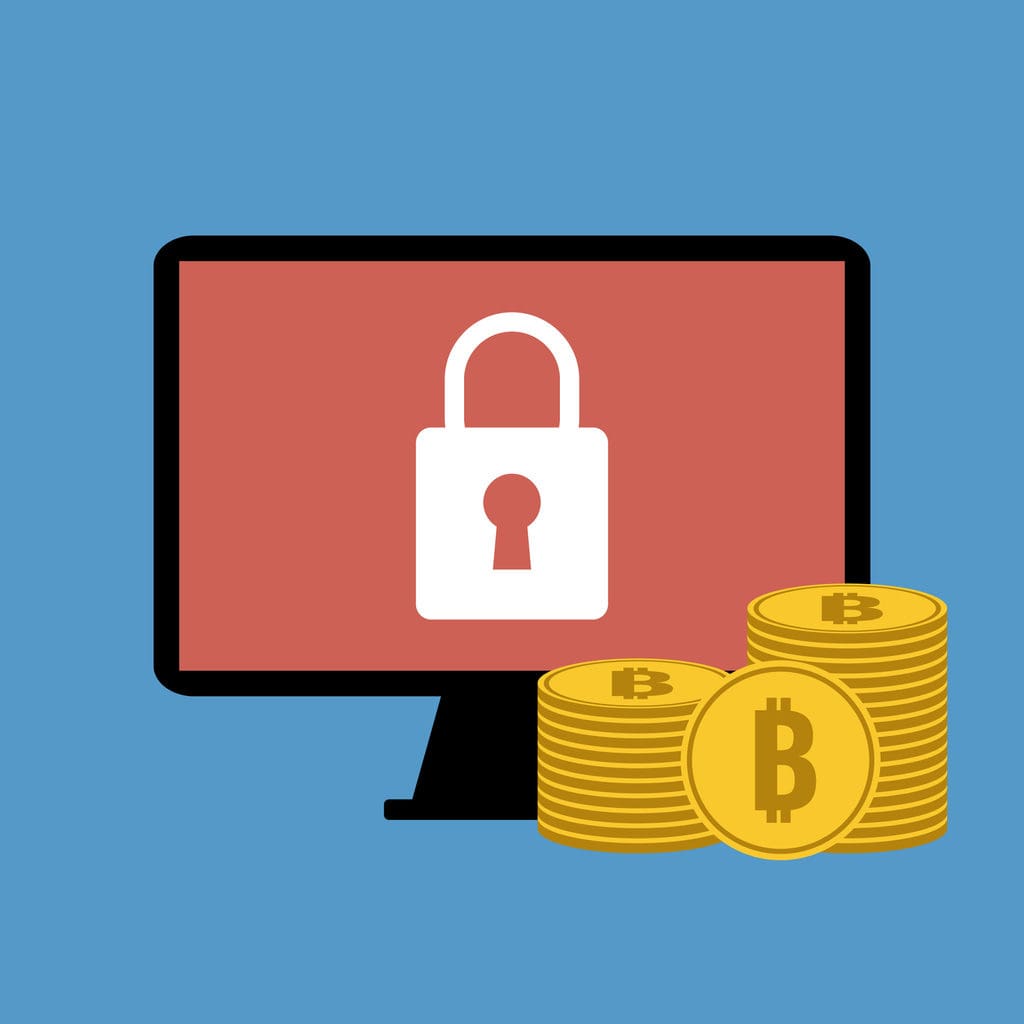
Let's talk a little bit about online purchase scams. What does that entail and what should consumers be watching out for?
For the most part, what that means is that you go, you purchase something, and you never get it. It's a fake website or fake ads. It's sending you to a fake website. These websites pop up all over the place. They can come down pretty quickly once somebody finds them. That's really what's happening.
We did another report last fall that was only on online purchase scams that really look more in-depth at this particular scam type. We found that you're at risk even if you're not searching for a product. We found that people are at risk because they're on social media. There are ads popping up. Even though they're not even shopping online, they're actually at risk because they're stepping on those ads and there are some fake ads out there that take you to fake websites. We found that that was a big thing that was happening.
The other thing folks should know is that we found that even doing online searches. If you are being proactive to find a product, you can also run across fake websites even when you're doing the searching yourself, so be careful.
Overall, what we found is that people are more at risk of losing money if they're approached online for any other kinds of scams. The suggestion is just be really aware when you're online, even if you're not shopping. If something sounds too good to be true, it probably is.
Be really aware when you're online, even if you're not shopping. If something sounds too good to be true, it probably is. -Melissa Trumpower Share on XIf you're seeing an ad for something that you've been searching for and the price is something that you've not seen anywhere else, a lot of times you'll hear, “Going out of sale.” “We're going under.” We'll go in and get the deal now. They use that kind of pressure as well.
If you see those kinds of things with great prices, a lot of times, that is a scam. You should do more research, take your time, and look around. If it's a website that is new and you haven't used it before, you can do some searching, check the URL, and check to make sure it's secure. Find out how old the site is. That's a really key piece of information. If it's a fairly new domain name, be very careful because that may be just a new site that's popped up. It'll come off as soon as it's done stealing money.
Unfortunately, domain names are very cheap compared to what they were 20, 30 years ago. It's very easy for a scammer to spin up a website, take some fake sales, and then shut it down a couple of days later.
Yes. The other thing too is we did some research to find out the folks who were able to avoid losing money, what they think helped them. One of the top things was to trust your gut. We also did some further research and combined that with other things like doing more research, prior knowledge of this particular scam type or any scammer tactics.
Sometimes it is good to stop. If you feel like something's wrong, the idea is to not do something rash but to stop. -Melissa Trumpower Share on XSometimes it is good to stop. If you feel like something's wrong, the idea is to not do something rash but to stop, think about it, hold on, just take a moment, and make sure to do that extra research. Do search on Scam Tracker to find out if somebody else has reported that scam. We found a lot of people have been able to avoid losing money by doing that, by searching.
One of the best ways, if you are buying stuff, is to make sure that you're paying with a credit card versus physical cash or debit cards, things where you can at least attempt to interrupt or reverse the transaction.
That's exactly right. Definitely, we've been saying for years, “Don't use gift cards.” That was an old scammer tactic. They still use it. Go to the local Walmart, buy Best Buy gift certificates or another kind of gift certificate, and give us the numbers.
Any kind of transaction, you don't want to pay with anything that you can't trace. That gift card, once you've given somebody the numbers, it's gone. There's no way to get that money back. Same with a money order. Wire transfers are really hard to get back.
The other thing that we're seeing a trend in the scammers now is those online purchase systems. Trying to get you to use Zelle or one of those other systems. They're very clear. A lot of them are very clear that only use this for people you know personally. If you know the person, it's a family member or a friend, that's the only time to use this. You shouldn't use it with somebody you don't know. However, that's happening. We're seeing a significant number of people lose money.
The top thing they use is a credit card, but a lot of times they can get that reversed. That's not necessarily the case with an online purchase system like Zelle or some of the other ones, so be very careful how you pay. For sure, it's a great point.
Most credit card companies are very happy to know—I don't know if they're happy about it, but if you think it's a fraudulent transaction, they're very quick to reverse it and then investigate it and get your money back to you pretty darn quick.
Yes. They're very proactive, that's for sure.
Let's move on to the cryptocurrencies involved in. What are you seeing involved in cryptocurrency scams?
That again, like I was saying earlier, scammers are essentially using it for all kinds of different scam types. They're just asking people to pay in crypto. We are seeing, interestingly enough, like I said, they're changing the way that they're using crypto.
We've seen an increase in romance scams tied to cryptocurrency where the scammers will build a relationship with somebody. Sometimes it's a romantic relationship, sometimes it's friendship. They spend the time building that relationship before they then start to talk to somebody about investing in a business. It's an investment scam, essentially, but it's using crypto.
What happens is once they've gained that person's trust, they ask them to invest money into a company that either they're not ever going to launch or it doesn't exist at all. That's a big thing that's happening. But again, there's a wide range of different ways.
We saw a huge increase. They doubled from 2020 to 2021. They don't make up the same percentage as some of our other scam types, they did increase significantly and the median dollar loss is pretty significant.
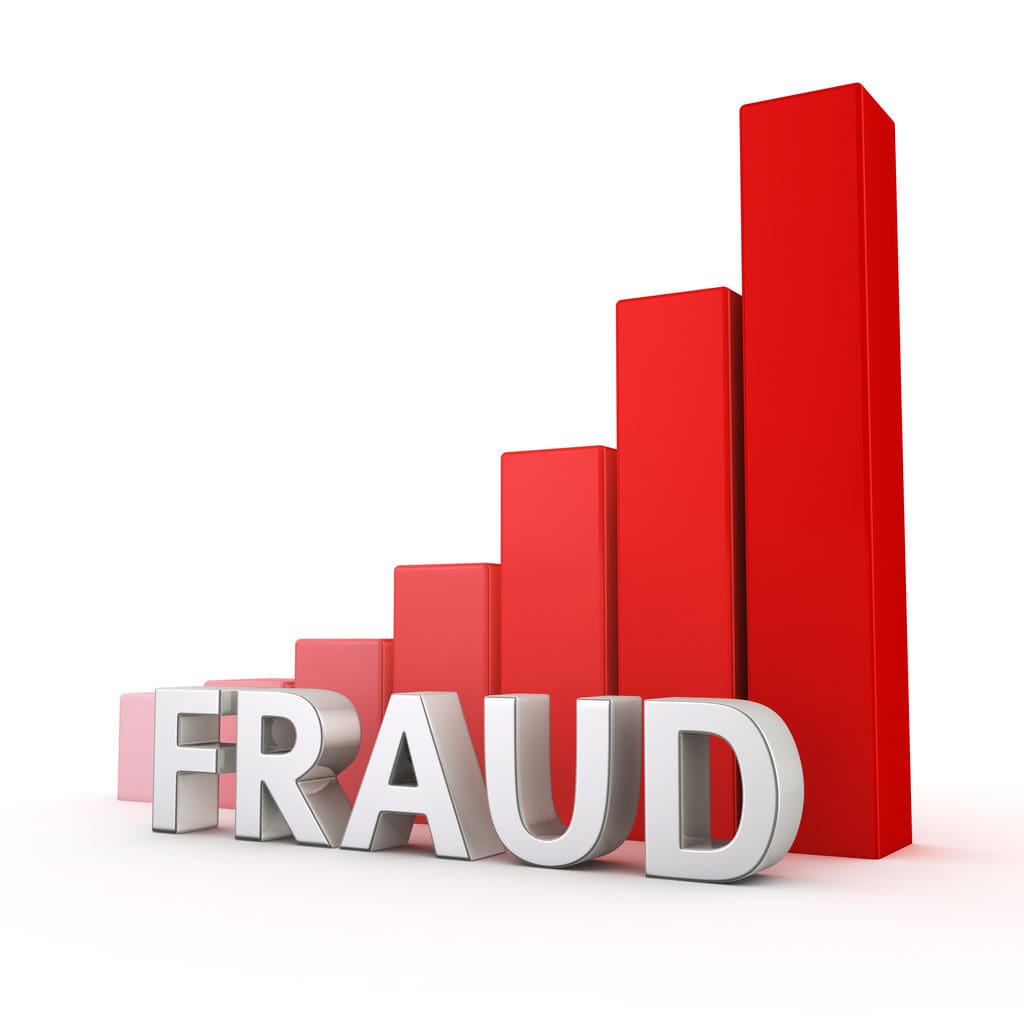
Online scams and fraud are on the rise!
We had $1200 as the median dollar loss. When people lost money, they were looking at $1200, which compared to the overall median dollar loss in 2021, it's $169. That's a pretty big difference so that's why it makes them risky.
One of the challenges with a cryptocurrency, it's kind of like the online payment systems of Zelle’s. Once you've done the transaction, you have no control of reversing the transaction.
That's right. I will say that I am not an expert on cryptocurrency, but we do have a new study coming out from BBB in another two weeks, I think, that is diving in on this particular scam type that's been written by some of the folks who are more experts on that particular scam type.
I was talking to a friend of mine recently. Someone that he knows, for legitimate reasons, was sending money via cryptocurrency. He made a typo in the address and basically sent the money to somebody else.
I think about it like when you're tying your bank account into a paycheck and a new bank account, they do that. We're going to put two cents in and they're going to pull two cents out. We're going to do a couple of small test transactions. I'd recommend that for people doing crypto transfers as well, test a very small amount that you can afford to lose before you start sending a larger amount.
That's great advice. I've heard the same thing with just the online payment systems too. People getting the wrong phone number. The person on the other end said, “Well, I'm not giving it back to you now.”
Yeah, that's why I don't like using these systems to pay things. What are some of the other top scams for 2021?
The third riskiest scam in 2021 was employment scams, which was the number one riskiest in 2019. -Melissa Trumpower Share on XThe third riskiest scam in 2021 was employment scams, which was the number one riskiest in 2019. Again, it remains in the top three. It was number two last year, number three this year.
It's still making an impact again. People are looking for those remote jobs. I think some folks are going back to work in person, but a lot of those jobs, they're searching online. What happens with that typically is, it's amazing the amount of work that these scammers will do in an employment scam. They will actually spend the time to interview you, have you fill out an entire application.
The interview process may take a week or two or longer. Then what happens is some of them will even have you do jobs. They'll send you stuff and work to do and then they gain your trust. Sometimes they're stealing your personal identifiable information on your application.
More often than not, the thing that we've seen a lot is what they'll do is they'll send you a fake check. In the mail, we'll send it to FedEx to make it look official. “Here's money for your home office. Now we need you to go out and spend money to get whatever it is, a laptop or whatever, bring it home.”
The first thing they say is put this in your bank account and then we need you to transfer it from your account to this other account where this person will be handling all the purchases, which doesn't make sense. But anyway, we'll do it. Then by the time they realize, it's too late. The fake check comes back and they've already transferred the money. Again, your money's gone, but you have to cover the fake check.
That's one of the most common tactics for employment scams. The median dollar loss for that is $900, which again, is really high. That's why these scammers spend a lot of time setting it up. They work with you one on one because at the end of the day, they get a pretty big payoff for it.
Are these jobs through the existing well-known job finding platforms or people finding them through Craigslist and posts on social media?
I think that the online job sites are trying really hard to weed them out. We've definitely had a lot of conversations with them. They have happened there in the past, but I think they're doing a really good job of trying to stop them from happening on the more established job sites.
A lot of times, they may approach you by email directly if they see you online. If you posted your information and you're looking for a job, you can see that on LinkedIn or you can see it on someone's job board. They'll sometimes reach out directly to you to say, “Hey, you look like a perfect candidate for this.”
The other thing they're doing is on Craigslist, a lot of times they're putting up very vague job descriptions with great opportunities. They're work from home, they're a good pay, but the skills are very vague because they're trying to get as many people to apply as possible.
Another thing I would say is be very careful of something, again, that looks too good to be true because they're going to pay you well, they're going to let you work from home, and they don't really require a whole lot of special skills for this. They're kind of vague about that. The reason that is usually because they're trying to get more people. They're targeting more people that way.
If it's supposedly a customer service role, but they're going to pay you a CEO salary, that should be a red flag.
Yes, exactly.
It's been a long time since I was looking for jobs, but I guess anytime that a job is asked, prospective employer's asking you to pay for something out of pocket, it should be a red flag. If they're asking you to transfer money around to people's bank accounts or money's coming through your bank account, that should be a huge red flag also.
Yes. That's exactly right. There are lots of red flags with scams that happen. Anytime there's an upfront fee for anything, whether it's an advanced fee loan, that's another scam. It was in the top 10. When they come at you and they want to approve the loan, but you’ve got to pay upfront.
Government grants are another one. That's another one in the top 10. Actually, that dropped off the top 10, but that is up when it continues to happen, where they offer you this great government grant, but hey, you’ve got to pay up before you get the grant.
Lottery, sweepstakes, again, same tactic. You have to pay upfront before you get your prize winnings. That's a great point, Chris. That is a huge red flag when they start to ask for these upfront fees for something that normally you wouldn't have to pay.
By the time this airs, I'll be in my 50s. I don't think I was ever asked by an employer to upfront pay for anything including uniforms. I think there was one saying, “You had to wear a certain color of pants and you can get them from wherever you want to get them.” But you get them and you own them. You're not paying us for them.
That's right.
What else do we have on the top five?
The other two in the top five are home improvement scams and investment scams. Home improvement, interestingly enough, lots of people staying at home were making improvements to their homes. It's known for riskiest. The median dollar loss for that scam is $955, 59.1% of folks were losing money when targeted by that particular scam type.
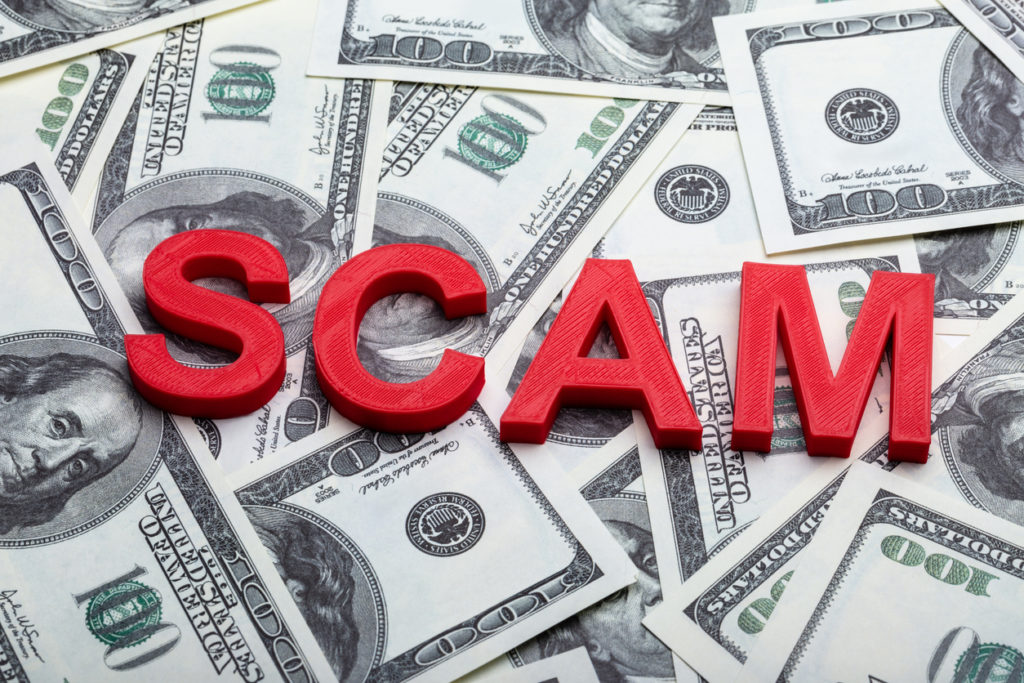
That's somebody that's agreeing to do work and suggesting they do work on your house. You pay them and they never do the work, they stop before they finish the work, or whatever it is. Essentially, you're not getting your money's worth for having that work done on your house.
The next one down in the top five is investment scams. That median dollar loss was $1100 for that one with 56.9% of people losing money to that scam. Again, I think that is another one. When folks approach you with this great investment opportunity, a low risk, you can make a lot of money—red flag. No investment opportunity has no risk.
That's where folks have to just put the brakes on and take pause, do a little research. If there's an investment opportunity somebody is offering you, it's time to just spend a little time to find out if this is legitimate or not. If it's somebody that claims to be a broker, FINRA has a broker check tool you could go and check and see if they're legitimate or not, which is a very quick thing to check on. If the person says they're a broker, you can verify that. So that's another great tool if you're being approached for some sort of investment scam, and that sounds not legitimate.
Anyone who's guaranteeing the return more than what your bank account is, which is zero these days. Anyone who's guaranteeing a return, you should be highly, highly suspicious of that because it's pretty hard. I don't know that people are legally allowed to guarantee a return if there's any risk involved.
Yeah. There are lots of red flags with that. The other tactic is they're always rushing you too. This is a temporary offer. If you don't take it, it's not going to be there. That's another red flag. Don't be rushed. If they're telling you that you have to make a decision right away, then it's better to walk away. Don't act on it because that is a red flag as well.
If they're telling you that you have to make a decision right away, then it's better to walk away. -Melissa Trumpower Share on XI think with many, many scams, the fear of missing out, that urgency, is really ramped up to 11. Whether it's an online purchase or an employment, “Hey, this job, it's not going to last. I'm going to fill it really quick.”
Anytime someone's trying to rush you and get you in an emotional state is a big red flag. I'm not guaranteeing that something's wrong, but that should be the warning sign of, “OK, I need to slow down. I need to talk to somebody else. I need to confer with a friend and talk to a family member.”
That's right. That's exactly right.
Do you have any general tips for avoiding scams?
I think we covered it. But just to pause for a little bit, I think every scam is different. Like I said, scammers change their tactics with the wind. If there's news, one of the things, for example, we saw a lot of employment scams in 2019 because Amazon was talking about moving their headquarters and where were they going to move it. They took advantage of the news and started pretending to be Amazon.
There are a lot of scammers that will also pretend to be legitimate organizations. Social Security Administration is a big one, the IRS is a big one. They can pretend to be Amazon, for example, a legitimate business, so be careful.
Even though they may pretend to be from a legitimate organization, that may not be true. Just be careful of folks who are posturing real organizations and real people. I think the big ones are, again, if something feels too good to be true, read your gut, pause, do a little bit more research. If you're online, be more cautious, even if you're not shopping.
If you're just on Facebook and trying to see what's going on, and you see a quick ad that looks great, just pause again and take a little bit of time and do some research on it. Just don't believe everything you read because there are a lot of ways people can pretend to be. Not just impostering people, but they can create fake websites really quickly that look pretty legitimate.
It doesn't take that long anymore. There are systems where you can create a really nice-looking website pretty fast. Just be careful. Even though it may seem legitimate, you can get calls to say they're from the IRS. They can do that. They can spoof calls as well.
Just be cautious. If you feel you get any of those red flags of they're trying to put pressure on you in terms of moving quickly, they're making promises that seem outlandish or too good to be true, just be careful. Do that extra research and deal with a third party if you can.
Check not just with your friends, but maybe check with the Better Business Bureau or check with another organization to see what else is out there to see what you can find out about the person or about the organization.
Those are great tips. Was there anything that came on to the top 10 list that kind of surprised you?
I think the cryptocurrency scams surprised me. I'm trying to think if there's anything else. This year, I think that's the big one. One thing that was interesting is we found a lot of people that were reporting not just losing money, but losing time this year. We asked them about that. One other thing I would mention that we are starting to look at a little bit more closely is the non-financial impacts of scams. It's not just losing money, it's losing, perhaps, your credit health, losing time.
We had folks talk about losing confidence. Once you've been scammed, it can make you feel less confident being online and so forth. There are other impacts if you're losing money to a scammer. Moving scams is one thing too. That was the scam with the highest susceptibility. All of the scam types, when folks were approached by a moving scam, more people lost money to those scams than any other, which is interesting.
Tell me about the moving scam. I have a couple of ideas about what it might be, but I'd like to hear from your perspective what you're seeing with moving scams.

They didn't show up in the top 10 of riskiest scams, but they were, like I said, the highest in terms of susceptibility. That's when a company is basically telling you that they're going to come and help you move. A lot of times, they just don't show up. You've paid them to come and help you do that. A lot of the time, they don't show up at all. Sometimes we've even had reports of them coming and taking your stuff and then basically saying you're not going to get it until you pay us more money.
They almost kind of hijack it and say, “We've had an issue. We need more time, and you're going to have to pay more money because of this. If you don't, you're not getting your stuff back.” There are a few different ways that those scams are perpetrated. But again, they're not in the top 10 because they're not as common. But when they happen, more people actually lose money to them.
I know last time I moved, we had found the company on Yelp and it had good reviews. At the end when they were leaving, there were super high-pressure tactics to, “My job is in jeopardy. If you don't post a five-star Yelp review, I'm going to lose my job.” We're like, “Oh, so that's why they had so many positive Yelp reviews.” They did a decent job moving and had no issues with the work they did. There was really, really high pressure to post a positive Yelp review to make them look better.
I'm glad you brought that up, Chris, because in our research last fall, that was one of the things we looked at for online purchase scams. Obviously, when people are trying to make decisions on whether or not this company that's online is real or not, they're looking at reviews.
One of the tips following that research was to just be very careful about reviews, obviously, because of what you're saying, but also because it's almost impossible to tell the difference between a real review versus one that's been faked and put up there.
We did a survey and asked people to take a test to say which ones were fake and which ones were real? Every single person failed the test. They couldn't tell the difference. I think reviews can be really helpful. If they're legitimate, you can verify that the organization's looking at them and making sure they're legitimate. I guess what I would say is just don't use reviews as your only research. That could be a piece of it, but it shouldn't be the only thing that you look at because you don't know how legitimate they are necessarily.
Yeah. One thing I found with online reviews is you don't know who the people are who made the review, so you don't really know what that review actually means. I'll take the joking segue. To trust someone's review of a restaurant, you have to know their taste in food. If they're a person who likes quantity versus quality, they may rate a restaurant much better because the portions were big.
If your primary thing is quality not quantity, you get there and you're going to be like, “Well, there's a lot of food, but it's not very good. I'm going to give it a three.” The other person gave it a five because they're talking about two different things.
That's a great point. It's very true. I think that's true for books or anything.
Anything that's subjective that could be very true of it.
Yes.
Where can people find the Scam Tracker online? I guess the two things: Where can they file a report and then where can they read the 2021 Risk Report summary?
Great question. If anyone wants to either report a scam or they would like to do research on Scam Tracker to find out what else has been reported, if they think they're being targeted, they can go into Scam Tracker and research to see if somebody else has reported the business name, email, the phone number, whatever it is. You can go to Scam Tracker, which is bbb.org/scamtracker. It's pretty quick and simple.
If you would like to read any of our research reports, you can go to our website, which is bbbmarketplacetrust.org. That's the foundation website. There's a whole list of our research. The latest research if you want to look at it is bbbmarketplacetrust.org/riskreport. That will take you directly to this latest research report, which highlights the riskiest scams for 2021.
We'll make sure to link all those in the show notes so people can find them easy when they're next to a computer.
Great. Thank you.
Melissa, thank you so much for coming on the podcast today. I really appreciate your time.
Thanks for having me, Chris. It was a pleasure.
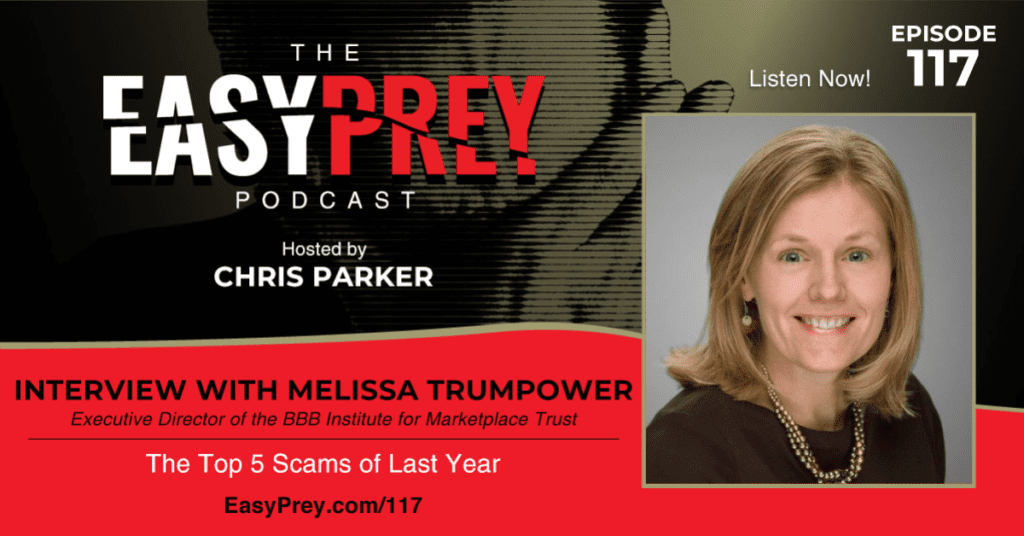

Leave a Reply